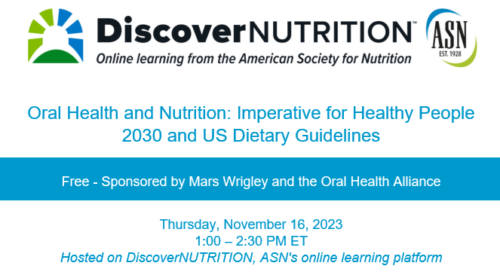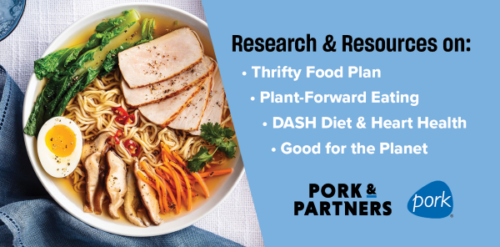How the food Industry exerts influence III: dietetics educators (pork industry)
This one is about activities of the National Pork Board, a USDA-sponsored checkoff program recipient (see comment at end). It comes from a reader, Lily Doher, reproduced with her permission.
I receive emails from the National CACFP [Child and Adult Care Food Program] Sponsors Association and occasionally click to see what free trainings they’re offering providers. I was encouraged by a training that described how providers play a pivotal role in developing childrens’ food habits and preferences and how providers can create positive food environments that support healthy eating. I clicked on the link and was surprised to see the training was sponsored and presented by the National Pork Board, and even more surprised to see the egregious industry influence throughout the training. Hosted by a registered dietitian nonetheless.
- “Empowering children to explore new foods, like lean pork, is key to addressing nutritional challenges faced by children.”
- “…pork has a huge role to play in discussions around food choice, exposure, language, and acceptance in children.”
- “Dr. Hicks-Roof then shed light on the crucial role of pork in shaping children’s food preferences and dietary habits…”
- “She also shared the science behind hunger and satiety, emphasizing the pivotal role of protein intake and importance of lean pork in informing conditional satiety.”
- ” Additionally, she shed light on pork’s affordability, nutrition and cultural significance as pork is a widely consumed meat globally.”
- “Dr. Hicks-Roof clarified that pork is the ultimate carrier food for busting through food neophobia in children, unlocking a new world of varied food exposures, and supporting opportunities to use positive, inclusive language during conversations about food with children.”
While this training is being highlighted by National CACFP, this type of industry influence is ultimately what led me to leave the Academy of Nutrition and Dietetics, and I am disheartened to once again see a fellow registered dietitian be the puppet for Big Food. Our children, and the providers that care for them, deserve better.
Comment: CACFP is the USDA’s Child and Adult Care Food Program. It provides reimbursements to providers of meals at child care centers, day care homes, and adult day care centers. I wrote about it most recently in a previous “weekend reading” post. Of course the National Pork Board, which runs the USDA-sponsored checkoff program, wants to encourage dietitians to promote pork. It must welcome the opportunity to provide free continuing education credits. Dietitians are required to complete 75 such credits every five years. As I’ve written previously, they can easily do that with free industry-sponsored coursses.
Do those courses influence what dietitians tell clients? Perhaps the Pork Board can answer that question (I wonder if it ever did before-and-after surveys). I’m guessing it must view the expense as worthwhile.




